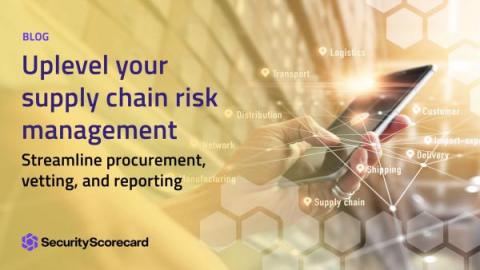Reduce silos and prevent supply chain threats
We’ve entered the fourth and final week of National Supply Chain Integrity Month, an initiative started by CISA and other government agencies to highlight the importance of securing our nation’s most critical systems and ensuring they stay resilient. I started off the month with a post about maturing your third-party risk management program, and followed that up with two more posts dedicated to securing the small business supply chain and streamlining procurement.










